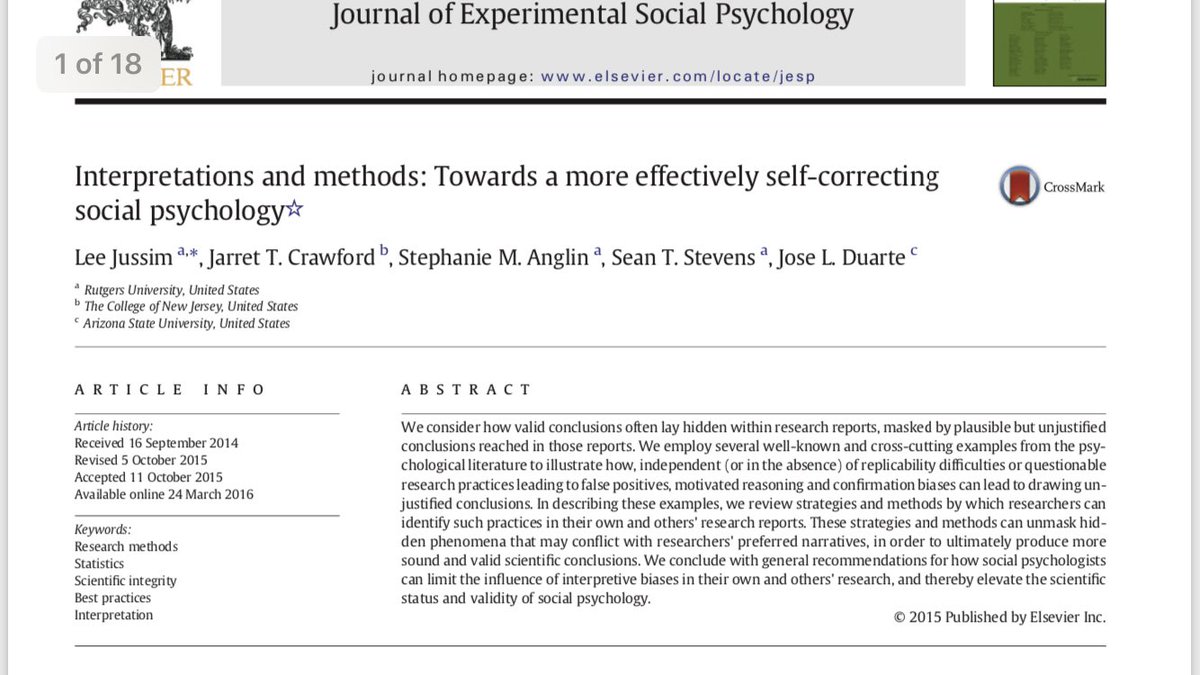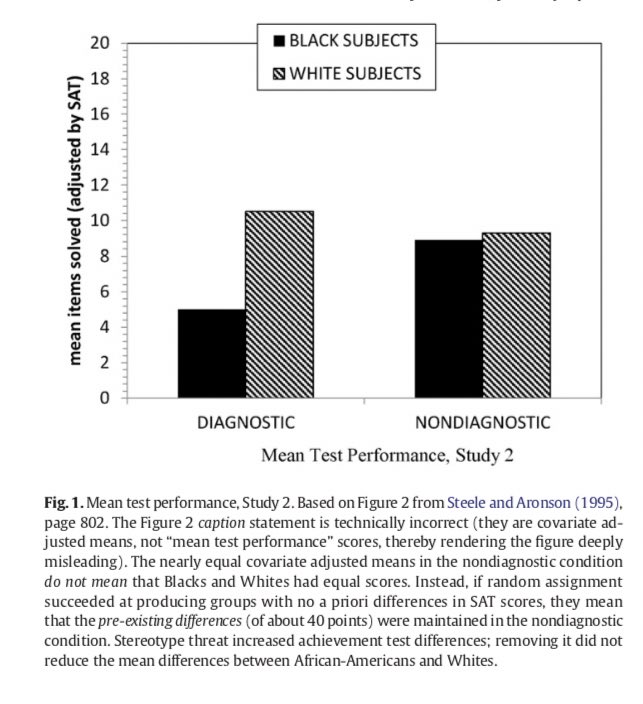(By @PsychRabble et al)
Allow me to summarize the key points.
And two important takeaways.
(Thread)
dropbox.com/s/elimpj5u0aae…

Fundamental problem in social psych (in addition to p-hacking):
Researchers, motivated by the “wow factor,” read into their (usually cool & interesting) results, the most shocking interpretation that’s *plausibly* consistent w/ their data.
Plausible ≠ justified.
Plausible leaves a lot of room for motivated reasoning.
Which few in field have an incentive to ever call out. Or raise more sensible interpretations.
Cause they also wanna teach and preach the “wow.”
Eg:
-Show situations matters.
-Conclude people fundamentally misattribute cause of variation to personality.
-W/o showing personality *doesn’t* matter. Or matters *less* than situation.
-Show correlation btwn x and y.
-Imply x is *primary cause of* y.
-Hide fact correlation minuscule.
-loose definitions of constructs (what exactly is the fundamental attribution error purporting? Can you state in way that’s falsifiable?)
-reporting standards that allow for misleading statements (eg don’t show summary stats in table)
In steretype threat lit, researchers claim no race gap in testing when race not made salient but obscuring fact “race gap” is based on residuals from regression that controls for past test performance. <—very misleading
As Jussim et al point out: misleads in precisely the way that makes the phenomena—stereotype threat—sound much more important than it is. (“Stereotype threat explains the *entire* race gap!”)
(They report that they are using an anova that controls for past test performance!)
(So editors and referees, and future lecturers, can plausibly justify accepting paper. And justify ignoring criticism?)
Aside from articulating well some of the many feelings I (and presumably others?) have while learning social psych (creative studies+cool phenomena+non-sequitor interpretations.)
And pinpointing specific instances of fallacious conclusions.
Really valuable for science imo.
For one, the persuasion motive is pretty straightforward.
Strong incentive to over-sell one’s work. And one’s field.
There are obvious costs of different forms of deception. And the less costly lies are the ones we observe.
No coincidence, the former means are the way social psychologists mislead.
These less costly lies, arent just more often done.
They are *seen* as less bad. (“It’s not really lying. If read results section closely...”)
And the fallacious conclusions they lead to get internalized, more or less, as truths.
Even by those who did the original work.
Despite everyone kinda knowing we do this, and knowing it’s misleading, we still do it, and even teach others to do it.
(“You gotta write your intro/conclusion so results don’t sound obvious!” “Find a way to say it that’s more surprising!”)
-Persuasion motive determines existence+direction of bias.
- Lies utilized depend on assymetry in costs.
-All aware of con. Seen as not so bad. Even prescribed.
-Conclusions internalized as truths. Even by original deceiver.
Moving on to my second major takeaway.
It’s a really good example of how perverse incentives in academia can lead an entire field toward absurd beliefs.
(cc @CT_Bergstrom)
But mostly we are thinking of marginal effects. Minor messing.
Like self-citations. And predatory journals.
They can *even* influence our fundamental beliefs about the world, our conclusions about science. And not just one or two people. Entire fields. For generations.
We are not talking about minor papers in social psychology. Or minor wording errors. We are talking about fundamental claims. That shape the field. Forming the foundation of undergrad classes and textbooks. The central dogma of the field.
Preferences are constructed.
The situation, not personality, determines behavior.
Rather absurd claims imo. (Of course personalities exist and are meaningful! Of course preferences are not constructed on the fly!)
But turned into absurd conclusions.
By perverse incentives. Like the desire to wow. W/o getting caught lying or juking stats.
B/c publication norms make it hard to criticize and correct for lies that ain’t lies. Conclusions that mislead, w/o fabricating. And make the field look informative, and their tools powerful.
Not just messing w/ citation metrics.
But impeding science and mislead scientists. And deeply distorting beliefs.
Eom
Maybe a third takeaway: is the role the perverse incentive of the “wow factor” may be playing in driving social psych to not be building up a coherent theoretical framework.
And makes shocking conclusions less shocking.
That’s what understanding tends to do: It makes things ex post simple and clear. Not ex post “wow.”
Eom








